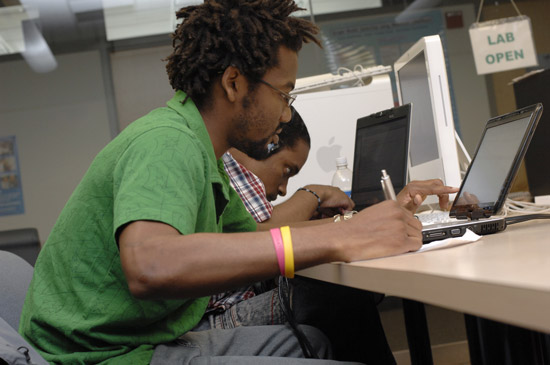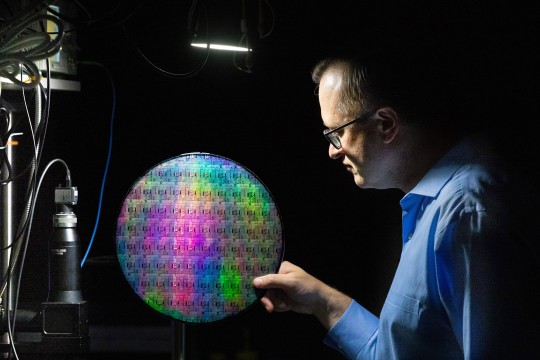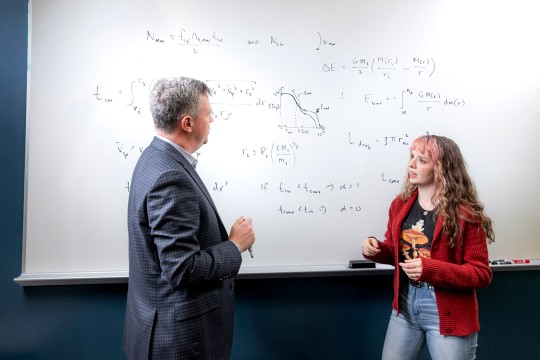Computer science students delve into research during summer experience
Research Experience for Undergraduates designed to open minds to graduate school
A. Sue Weisler
Ten computer science students, five from RIT and five from across the country participated in a Research Experience for Undergraduates this summer. The program was designed to increase interest in research and graduate studies.
The next generation of computer science researchers immersed themselves in various projects at Rochester Institute of Technology this summer. Ten students, five from RIT and five from across the country, spent 10 weeks exploring black holes, high performance file systems, data visualization and other topics.
The goal of their experience was not merely to break new ground in the field but to develop a passion for performing research. That’s why the National Science Foundation awarded RIT a grant worth more than $250,000 to make this Research Experience for Undergraduates possible.
“There is a shortage of people with a master’s degree of PH.D. in the computer science field,” says Hans-Peter Bischof, who joined fellow computer science professors Reynold Bailey, Minseok Kwon and Rajendra Raj to supervise the experience. “We need more U.S. Residents in the upper levels of the educational scene. We hope this experience encourages these students to further their studies in computer science.”
And it appears to have been successful.
“Before I started the program, I was considering a master’s degree. This has opened my eyes more toward a Ph.D.,” says Virginia Allen, a fourth-year RIT computer science major. “I like trying to solve a problem. You work independently, but you also work with others in different departments. That’s important because not everyone thinks alike. You get to learn different terms and a different way of thinking.”
The program has made a similar impact on Loren Abrams, a senior computer science major from Loyola Marymount in Los Angeles.
“This is an experience that I can’t come across at my school,” Abrams says. “I really like delving into stuff that hasn’t been solved yet and accomplishing what hasn’t been accomplished. I was thinking about graduate school before I came here. This has verified my original feeling.”
In addition to providing students with an engaging research experience, the program educates them about the possibilities that exist in graduate school. That portion, according to Bischof, is incredibly important not just to the computer science discipline, but society as a whole.
“Our society is built on the idea of building smart, intelligent systems. You need smart, sophisticated people to build them,” Bischof says. “At the moment, there are not enough of them present in computer science. We need to do something as a society to make a difference. This is one step.”
Abrams believes there is a certain stigma attached to research in the eyes of his peers.
“People think that by pursuing research and going to graduate school instead of entering the workforce, you’re not going to make money right away and you’re not going to make as much money in your career,” he says. “They don’t realize that you have the opportunity to work on solving more significant problems that have more far reaching impact. It’s really a noble cause.”













